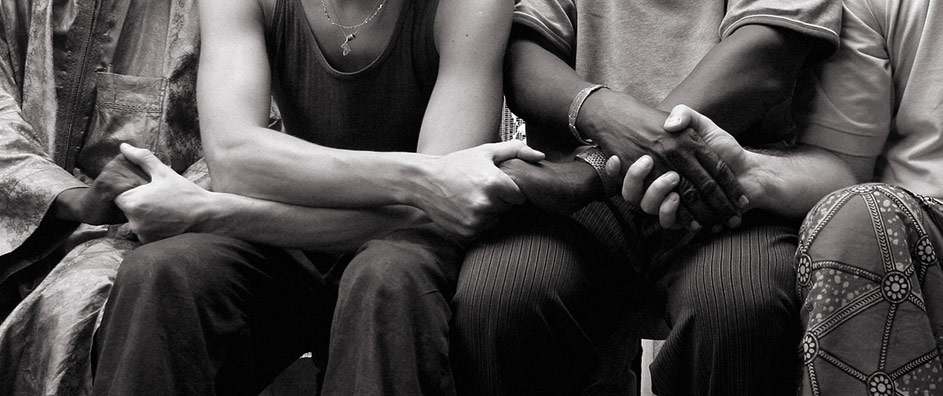In an increasingly interconnected world, a thought-provoking question looms: What happens when society collectively ignores the subtleties of racism? A pervasive neglect of this pressing issue significantly undermines communal harmony and social justice. The Bahá’í teachings provide profound insights into this multifaceted dilemma, elucidating the salient consequences of ignoring racism and advocating for its eradication as a societal imperative.
The Bahá’í Faith asserts that humanity is one. This tenet is not merely a slogan; it is a call to action that prompts a critical examination of our societal norms. When racism persists, it undermines this foundational belief, fostering division and disintegration. The neglect of racism not only affects targeted communities but also jeopardizes the fabric of society as a whole. Those who evade acknowledging its existence contribute to a culture of silence, which ultimately harms everyone.
Racism, in its many forms, operates insidiously. It manifests not only through overt discrimination but also through structural inequalities that are often overlooked. Individuals might ask, “Is it really that significant?” The answer lies in understanding that systemic racism perpetuates cycles of disadvantage, limiting opportunities for marginalized groups. This is where the teachings of the Bahá’í Faith resonate deeply, emphasizing the moral imperative for growth and unity, which cannot flourish in a climate of prejudice.
The Bahá’í writings encourage individuals to embark upon a journey of introspection, examining personal and societal biases. The challenge, however, lies in the willingness to confront uncomfortable truths. The reluctance to acknowledge racism often stems from a fear of losing privilege or confronting one’s own biases. This denial creates a milieu in which ignorance thrives, exacerbating racial tensions and societal fragmentation. The teachings urge adherents to foster environments of learning and dialogue, where open discussions can facilitate greater understanding.
A pivotal component of addressing racism is education. The Bahá’í perspective advocates for the establishment of educational programs that illuminate the historical and cultural dimensions of racial issues. Engaging with academic discourse, history, and narrative storytelling can empower individuals to comprehend the ramifications of racism on a broader scale. Through understanding, the community can leverage social responsibility to galvanize collective efforts toward eradicating prejudice.
Moreover, the Bahá’í teachings extol the virtues of justice and equality, underscoring the necessity for equitable treatment of all individuals. They advocate for an examination of existing institutions to identify and dismantle systemic racism. The challenge presented here involves the deep-seated resistance to change within societal frameworks, which often prioritize entrenched interests over equitable progress. Rather than perpetuating status quo injustices, the call to action is unmistakable: the pursuit of justice demands unwavering courage and commitment.
A tangible manifestation of these principles is the need for collaboration among diverse communities. The Bahá’í Faith envisions a global society where individuals from different backgrounds come together to promote unity and understanding. This collaboration serves as a counterweight to the divisions wrought by racism. Engaging in interfaith and intercultural dialogues can serve as a fulcrum for reimagining our collective futures, empowering communities to share experiences and insights that transcend racial boundaries.
Furthermore, the Bahá’í teachings emphasize the importance of developing a robust moral compass to navigate the complexities of racial inequities. This moral framework fosters empathy, compassion, and service, which are vital elements in the fight against racism. When individuals embrace their capacity for altruism, they contribute to transformative change. The challenge lies in the translation of this moral understanding into actionable behaviors that dismantle the very fabric of racial discrimination.
Nevertheless, while the Bahá’í teachings present a hopeful vision, the path to overcoming racism is fraught with obstacles. Activism, whether through passive support or active engagement, requires perseverance and tenacity. Bahá’í principles advocate for the cultivation of resilience—a quality essential for those dedicated to challenging systemic racism. The act of standing firm in the face of adversity emboldens others to join the movement, thereby amplifying collective voices for change.
In conclusion, the persistent neglect of racism is a dire threat that demands immediate attention. The Bahá’í teachings illuminate pathways toward resolving this issue by emphasizing justice, unity, and collaborative action. The challenge for individuals and communities alike is to confront their own biases, defy complacency, and actively participate in dismantling structures that perpetuate inequality. As we navigate the complexities of society, let us pose this rhetorical inquiry: Are we willing to transcend our differences and contribute to a world where every individual is treated with dignity and respect? It is imperative that we engage wholeheartedly in this quest for equity, as it is not merely a fight for one community but a collective struggle for the betterment of all humanity.
